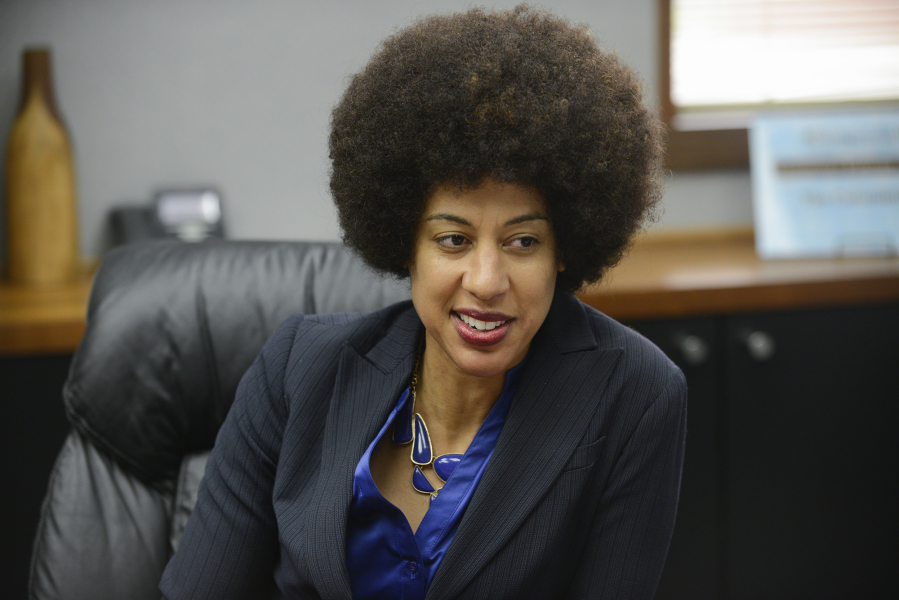The next state superintendent of public instruction could be at the heart of solving arguably Washington’s greatest challenge: fully funding public schools.
Former classroom teachers Erin Jones and state Rep. Chris Reykdal are vying to succeed Randy Dorn in the nonpartisan elected office. The two candidates spoke to The Columbian’s Editorial Board on Monday.
Reykdal, D-Tumwater, said he appreciates the attention Dorn has brought to the McCleary case. In McCleary, the state’s top court has ruled the Legislature is not fulfilling its constitutional duty to fully fund the state’s public schools. But now, he said, the state superintendent’s position requires someone “to stop pounding the table” and “bring the solution.”
Reykdal sees the fix as being a combination of school levy reform and a possible increase in the capital gains tax.
Jones said it’s crucial for the new state superintendent to address school levies as soon as the 2017 legislative session begins.
“We have to address levies right up front because the cliff is coming,” she said.
Some school districts, including Evergreen and Vancouver, rely heavily on voter-approved school levies. Districts spend the money from the additional local property taxes on a variety of programs and purposes.
The practice ballooned during the recession. As the state struggled to fund local schools, communities stepped in and filled the gap with levy money. The result is schools in wealthier regions are able to provide more for students than districts in poorer areas.
In McCleary, the court ruled that school districts’ reliance on these local levies to provide basic education is unconstitutional. Meanwhile, the provision that authorizes large local school levies sunsets in 2018.
Jones and Reykdal point to their different backgrounds as a way to both distinguish themselves from each other and also to explain the perspective they would bring.
Jones, who would be the first black woman elected to a statewide office, was adopted as an infant. She attended school at the American School of The Hague and speaks four languages. She attended Bryn Mawr College and received her teaching certificate at Pacific Lutheran University.
She has three children who attended public schools. In addition to working as a teacher, she worked in the Office of Superintendent of Public Instruction as the assistant superintendent of student achievement. Jones sees the state superintendent’s role as ensuring those who are doing the on-the-ground work, like teachers and local administrators, have a voice in the future of the state’s public schools.
She’s driven by a passion, she said, to close the opportunity gap.
Reykdal grew up in Snohomish County, the youngest of eight children, and experienced poverty from a young age. He was the first person in his family to attend college. In addition to serving as a teacher, he’s been a school board member. He attended Washington State University and graduate school at the University of North Carolina – Chapel Hill. He has served on the House Education Committee in the Legislature.
He is the first candidate for the position with children still enrolled in the public school system.
Reykdal said the solution to the chronic underfunding of public education is clear.
“It’s not as if people don’t understand the dilemma,” he said. “It’s a political dilemma.”
Republicans don’t want to raise taxes, he said. Democrats who live where local levies are propping up the system don’t want a levy swap, where their schools would end up with less.
“We’re down to politics; we’re down to Nov. 8 choices,” Reykdal said.




